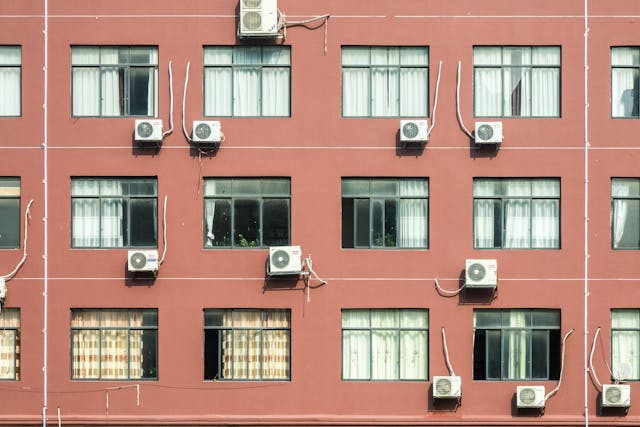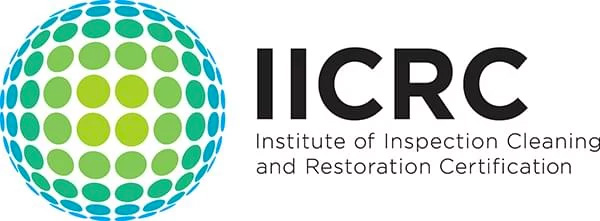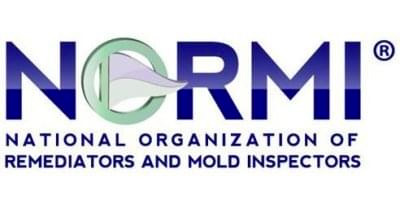Black Mold in Air Conditioners
Black mold can lower your home’s air quality, harming your health. This is because it can prompt some allergic reactions, especially in people with mold allergies. Some toxic molds can even cause severe damage to your body’s immune system.
It’s already bad enough to have black mold growing in places like your bathroom or basement, but what if mold starts growing in your air conditioner? Luckily, in this article, you’ll learn how to prevent mold growth in your air conditioner, and what to do in case you do find it in your air conditioner unit.
Does Black Mold Pose Any Danger If It Starts Growing In Your HVAC Unit?
Black mold growing in your home will begin releasing spores into the air through the air ducts which you may end up inhaling and identifying by scent.
As per the Center for Disease Control (CDC), inhaled mold through the air ducts can lead to a number of health issues, including eye irritation, coughing or wheezing, throat irritation, and nasal stuffiness. In some cases, they can even be responsible for irritation to the skin.
People allergic to mold may have severe reactions to mold growth. The same applies to people with compromised immune systems.
The mold that grows in the air conditioner unit isn’t necessarily more hazardous than mold growing elsewhere in your home. That said, the air conditioner unit will be more efficient at distributing the spores throughout your home through the air ducts. That’s because the unit in your air conditioner is designed to distribute air throughout your house.

If the concentration of mold spores is high enough, a black mold problem moisture will be inevitable.
How Does Black Mold Grow In An AC Unit System?
While not always black mold, mold spores can be found everywhere as it travels through the air. Sadly, it’s impossible to ensure your home is 100% mold-free. Even if you were successful at doing it, more mold spores would come every time you opened a window or door through the air.
When spores grow into mold, more and more spores are released. The higher the concentration, the more the health problems will occur. Therefore, the key to preventing a mold problem is by preventing it from growing in the first place.
For mold to grow, it needs two crucial things: moisture and a food source. Moisture can occur in a variety of ways, including from spills, leaks, and high humidity. As for the food source, it can range from wood to organic particles found in dust.
Generally, the unit in your air conditioner doesn’t provide a perfect home for black mold to grow. That’s because Styrofoam channels and sheet metal ducts inside the AC unit doesn't offer a food source like wood to mold. However, dust usually collects in those places and that can allow mold growth.
How Do I Get Rid Of Black Mold In My Air Conditioner?
The following are practical steps you can take to get rid of black mold and mildew from your air conditioner:
1. Clean the Evaporator Coil
Black mold thrives in areas that are damp and well-shielded from sunlight. Therefore, it isn’t surprising to find black mold has grown on the evaporator coil. The evaporator coil is enclosed with the plenum of the unit in your air conditioner and is damp and dark, providing the best conditions for mold growth.

The evaporator coil is designed to remove latent heat from the air passing through it. The growth of black mold in the coil can directly affect the performance of the unit in your air conditioner. Without good airflow, the evaporator coil won’t be able to perform efficiently and air quality.
Ideally, you should have the evaporator coil in your AC unit cleaned on an annual basis to minimize the chances of mold growth.
2. Replace Your Air Filter On a Regular Basis
A clogged filter will do a poor job of preventing black mold growth. In fact, when a filter is clogged, it’ll actually provide an ideal environment for black mold to grow. This is especially true if the air filter is exposed to high moisture or humidity levels.
To prevent mold from getting circulated throughout your home by the unit in your air conditioner, replace the air filter regularly.
Preferably, once every three months for the air quality. You should even increase the rate of replacement if you have a pet. In this case, you should consider doing the replacement on a monthly basis for the air quality.
3. Drain the Drip Tray as Often as Necessary
The condensate drip tray is located right below the evaporator coil. Moisture condenses on the drip tray as latent heat from the air is removed by the evaporator coil.
Due to its function, the drip tray is usually a hotbed for black mold growth. This is especially true if the condensate is being blocked from draining properly.

Always clean and disinfect the drip tray after cleaning the evaporator coil. You should also check the drip tray for holes, cracks, or rust spots that could lead to water leaks.
4. Minimize Humidity Levels In Your Home
Black mold thrives in humid environments. So, ensuring your home humidity levels remain at a certain threshold is key to preventing mold growth in your AC unit. According to most experts, always maintain a humidity level of between 30% and 50%.
In most cases, all you have to do to control excess humidity is to change the temperature by turning on your air conditioning system. The unit in your air conditioner can help dehumidify your home to a certain extent with the temperature.
For best results, consider using a stand-alone dehumidifier for air quality. You can get a dehumidifier in multiple variants, from whole-house ones to portable ones.
5. Consider Installing an Ultraviolet Germicidal Lamp
Another effective way of dealing with black mold growth is by installing a UV germicidal lamp. Ultraviolet rays have been clinically proven to be effective in curbing the growth of mold and bacteria.
For best results, you should install the lamp near an evaporator coil and other places that are hotbeds for mold growth.
Besides killing mold spores, the lamps are also proven to be effective against bacteria and viruses.
Bottom Line
Black mold growing in the unit in your air conditioner can be a source of health issues for you and your family. Once the problem has occurred, removing it can be difficult and possibly expensive.
The best way to deal with a mold problem is to prevent it from happening in the first place. With a little bit of luck, these tips should prove helpful in that regard.
If you suspect you have a black mold issue in your air conditioner or anywhere else in your home, call Markham Services today! We will inspect and test possible mold growth to determine the best steps for you to take.


